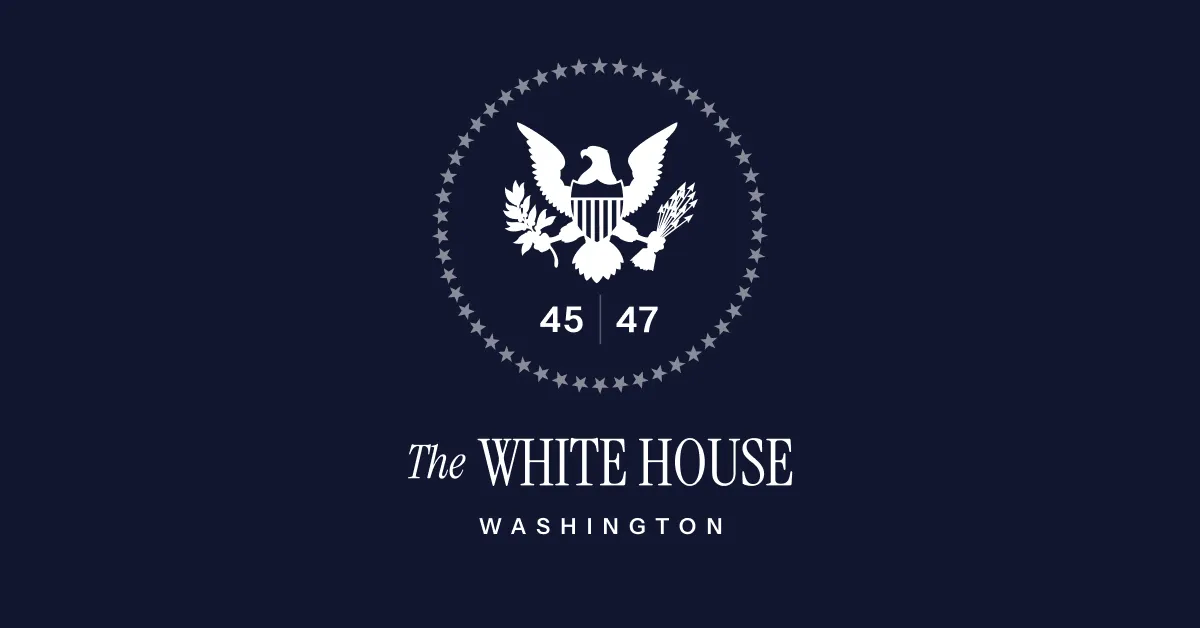
By the authority vested in me as President by the Constitution and the laws of the United States of America, it is hereby ordered:
It shall be the policy of the executive branch to vigorously enforce the historic and robust protections for religious liberty enshrined in Federal law. The Founders envisioned a Nation where religious voices and views are integral to a vibrant public square and human flourishing, allowing religious people and institutions to practice their faith freely without fear of discrimination or hostility from the Government.
The roots of religious liberty stretch back to the early settlers who fled religious persecution in Europe, seeking a new world where they could choose, follow, and practice their faith without interference from the Government. This principle was enshrined in American law with the First Amendment to the Constitution in 1791, which has since protected the fundamental right to religious liberty as America’s first freedom.
During my first term, I issued Executive Order 13798 on May 4, 2017, aimed at promoting free speech and religious liberty. Following this order, the Attorney General issued a memorandum for all executive departments and agencies titled “Federal Law Protections for Religious Liberty” on October 6, 2017. The Supreme Court has also upheld the Founders’ commitment to religious liberty, reinforcing the principle that religious voices should be welcomed on an equal basis in the public square.
In recent years, however, some Federal, State, and local policies have threatened America’s unique tradition of religious liberty. These policies have attempted to infringe upon longstanding conscience protections, prevent parents from sending their children to religious schools, and threaten funding or non-profit tax status for faith-based entities, effectively singling out religious groups and institutions for exclusion from governmental programs. Some opponents of religious liberty seek to remove religion entirely from public life, while others characterize it as inconsistent with civil rights, despite the vital roles religions have played in the abolition of slavery and the establishment of Federal civil rights laws.
President Ronald Reagan once reminded us that “freedom is never more than one generation away from extinction.” Therefore, it is essential for Americans to reacquaint themselves with our Nation’s remarkable experiment in religious freedom to protect it from emerging threats. The Federal Government will promote citizens’ pride in our foundational history, identify threats to religious liberty, uphold Federal laws that protect all citizens’ participation in a pluralistic democracy, and safeguard the free exercise of religion.
(a) There is hereby established the Religious Liberty Commission (Commission).
(b) The Commission shall function as follows:
(i) The Commission shall be composed of up to 14 members appointed by the President, including educated representatives from various sectors such as the private sector, employers, educational institutions, religious communities, and States. This diverse composition will provide multiple perspectives on how the Federal Government can defend religious liberty for all Americans. The President will designate a Chairman and Vice Chairman from among the members. Ex officio members will include the Attorney General, the Secretary of Housing and Urban Development, and the Assistant to the President for Domestic Policy.
(ii) Members appointed to the Commission shall serve one term ending on July 4, 2026, the 250th anniversary of American Independence. If the term is extended beyond this date, members may be reappointed for a 2-year term. Members may continue to serve after their term until a successor is appointed.
(iii) The Commission shall produce a comprehensive report on the foundations of religious liberty in America, its impact on society, current threats to domestic religious liberty, strategies to preserve it for future generations, and programs to celebrate America’s peaceful religious pluralism. Specific topics for consideration will include the First Amendment rights of pastors, religious leaders, and faith-based institutions; attacks on houses of worship; and conscience protections in various sectors.
(iv) The Commission shall advise the White House Faith Office and the Domestic Policy Council on religious liberty policies, recommending steps to secure domestic religious liberty through executive or legislative actions. It will also identify opportunities to collaborate with the Ambassador at Large for International Religious Freedom.
(v) Members of the Commission will serve without compensation but may be reimbursed for travel expenses and per diem as permitted by law.
(vi) An Advisory Board of Religious Leaders, an Advisory Board of Lay Leaders, and an Advisory Board of Legal Experts will be designated by the President to support the Commission, providing insights and recommendations on religious liberty issues.
(vii) The Commission shall terminate on July 4, 2026, unless extended by the President.
(viii) The Department of Justice will provide necessary funding and administrative support for the Commission.
(ix) The Attorney General will perform functions related to the Federal Advisory Committee Act, ensuring compliance with established guidelines.
If any provision of this order is held to be invalid, the remainder of the order and its applications shall not be affected.
(a) Nothing in this order shall impair the authority of executive departments or agencies or the functions of the Office of Management and Budget.
(b) This order shall be implemented consistent with applicable law and available appropriations.
(c) This order does not create any enforceable rights or benefits against the United States or its entities.
— DONALD J. TRUMP
THE WHITE HOUSE, May 1, 2025.